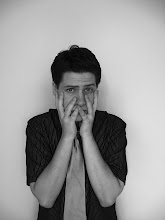Required reading: Eternal recurrence, eternal recurrence vs. infinite events
Obviously, because common interpretations of eternal recurrence don’t consider there to be infinite events, no proponent thereof makes any attempt to reconcile the two. Why should they? There is no empirical evidence that events are infinite (my a priori proofs that space and time, and therefore events are infinite are not empirical, obviously). My best attempt at reconciling the two is to take the expression ‘history repeats itself’ seriously.
While I cannot admit that any event can be the same as another without occurring at the same time, I can admit that some events are so similar as to indicate a loose concept of sameness (but not true identity). For example, the method in which I brush my teeth is generally the same across time. I brush them in a certain way, at a certain time of day, and it takes about the same amount of time every time. There will be deviations in certain circumstances, but it would not be inaccurate to argue that the history of my tooth brushing has repeated itself so often as to produce at least two events that are essentially the same apart from the time at which it occurred (from my human perspective). There is more to eternal recurrence theory that cannot be accounted for in that interpretation, however.
While I cannot admit that any event can be the same as another without occurring at the same time, I can admit that some events are so similar as to indicate a loose concept of sameness (but not true identity). For example, the method in which I brush my teeth is generally the same across time. I brush them in a certain way, at a certain time of day, and it takes about the same amount of time every time. There will be deviations in certain circumstances, but it would not be inaccurate to argue that the history of my tooth brushing has repeated itself so often as to produce at least two events that are essentially the same apart from the time at which it occurred (from my human perspective). There is more to eternal recurrence theory that cannot be accounted for in that interpretation, however.
While Nietzsche didn’t believe that explanation, it is believed by Walter Kaufmann - a frequent translator and editor of his work - that eternal recurrence as Nietzsche conceived of it may have been derived from the works of Heinrich Heine, who wrote
“[T]ime is infinite, but the things in time, the concrete bodies, are finite. They may indeed disperse into the smallest particles; but these particles, the atoms, have their determinate numbers, and the numbers of the configurations which, all of themselves, are formed out of them is also determinate. Now, however long a time may pass, according to the eternal laws governing the combinations of this eternal play of repetition, all configurations which have previously existed on this earth must yet meet, attract, repulse, kiss, and corrupt each other again...” [my emphasis]
My reading of this quote seems to cohere well with the ideas I’ve been explaining since the beginning: the infinite has finite parts, and following from that, infinite time yields an infinite number of finite events, or, in a much broader sense, one infinite event.
Heine’s description of repulsion, kissing, and corruption is nice and flexible. It doesn’t say explicitly imply exact repetition, rather, it is a more poetic way of saying “stuff interacts and interrelates, and will continue to do so, in much the same way as it always has,” wherein “stuff” refers to events and event-objects.

No comments:
Post a Comment